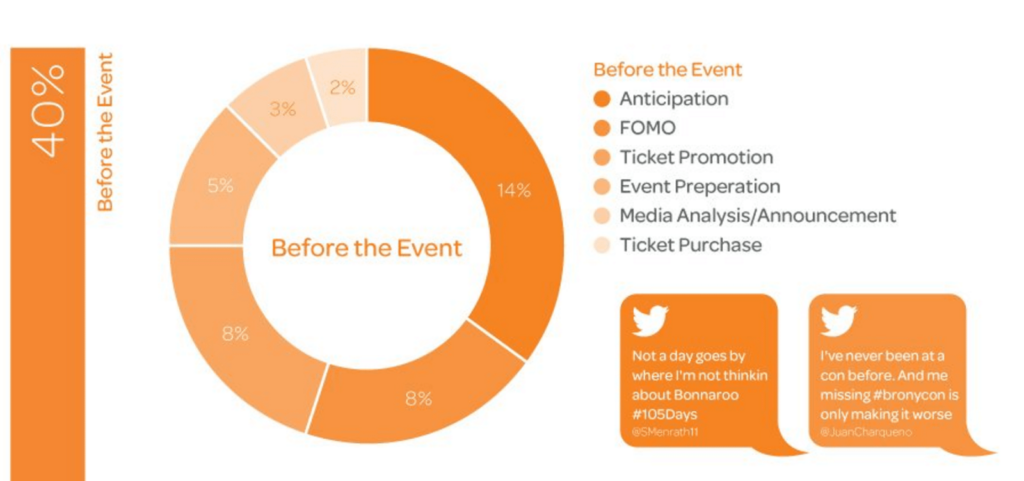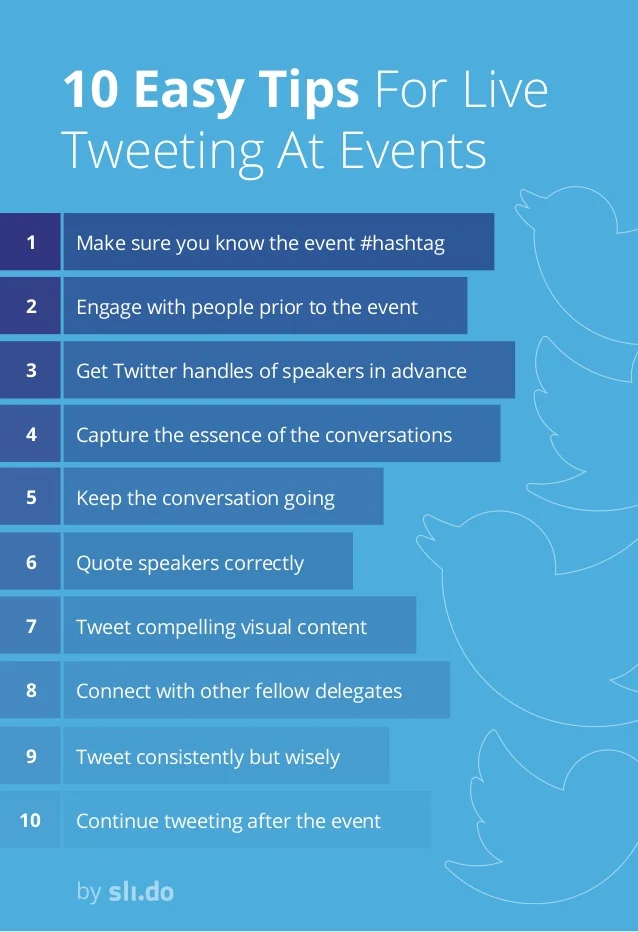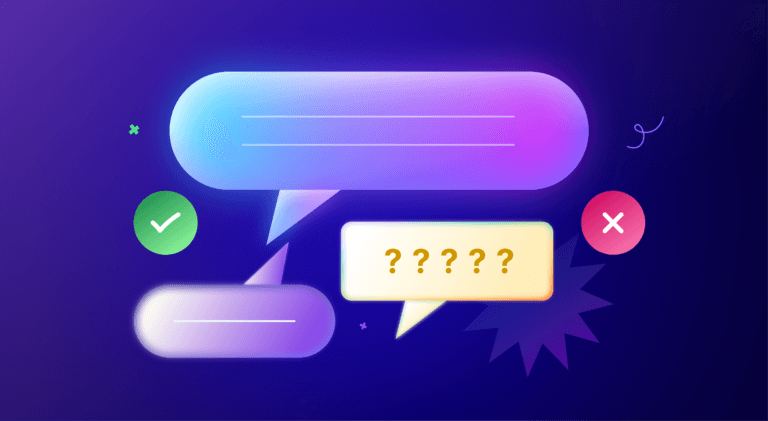How to Promote an Event Using Content Marketing

Table of Contents
- What is Event Content Marketing?
- 10 Reasons to Use Content to Promote Your Event
- How to Promote an Event Using Content Content Marketing
- Key Takeaways
- Conclusion
- FAQs
Event planners concentrate on securing excellent keynote speakers, fantastic venues, delicious cuisine, and fun parties, among other things. Many moving parts go into arranging a good event. One of them is an event content marketing plan. You’ve probably thought about how to promote your event using display advertisements, email marketing, and social media. But how much attention have you given to your overall event content marketing strategy?
An event content strategy is the most crucial factor in your total success. After all, strong content is essential to all of your other marketing efforts. You can’t have a successful email campaign without content, and you can’t have a successful social strategy without creating material for people to share.
In this article, we’ll go through some of the best event content strategies and how to promote an event through event content marketing.
What is Event Content Marketing?
The numerous methods you may use to share information online can be done using content. This includes articles on the web, blog entries, videos, social media postings, photos, memes, and GIFs. Content may be carefully utilized to assist a variety of components of your event, from early promotion to on-the-ground interaction. You’ve probably heard the term “content is king” — it’s a cliché but true.
The next step is event content marketing. It refers to the process of getting your material in front of the appropriate people at the right moment.

10 Reasons to Use Content to Promote Your Event
Online visibility can be the best reason to use a content marketing plan for your event. The internet era may make event marketers who don’t have content marketing plans practically invisible. However, when you consider it, the benefits add up. Event content marketing provides more options for exposure than traditional techniques, and it is specifically tailored to reach, captivate, and engage today’s audiences.
Here are ten reasons why you should use content to promote your event.
- It’s designed specifically for the digital age: Content marketing, while it has been around for a long time, now uses search engine algorithms that prefer new, high-quality online content.
- Content marketing is specially built to take advantage of tried-and-true SEO strategies. It also helps event websites rank higher in search engines. Your event must be found online. However, if you’re on the second or third page of internet search results, your chances of being found are slim. Consequently, your website’s odds of appearing towards the top of search results lists considerably improve.
- It helps form a community. Whether your event is for an association or not, it is frequently about developing bonds among the individuals who attend—in other words, community building. Creating relationships with users online throughout the year is a critical component of good content marketing. You have the chance to chat with, help, and educate your potential attendees on important information as you participate on the numerous social media sites where they spend time. You create connections that lead to additional registrations.
- It enables you to provide exactly what your audience wants. Do they desire an e-book with the findings of your market research? Is it possible to have a video interview with your keynote speaker? Or a post-event Twitter chat to share their key takeaways? Using event content marketing, you can offer your event community members whatever they want, when, where, and how they want it.
- Meetings, conferences, and events are prolific content generators, whether photos, videos from sessions, written summaries, or social media posts by participants sharing their own experiences. When “content is king,” it is almost terrible to let it all go unused.
- You create “thought leadership” on the internet when you employ event content strategy to construct your event website as an information resource for individuals interested in your event theme. This gives your event a lot of credibility and helps you attract the people who are most likely to sign up for it. It enables you to establish a reputation as a thought leader.
- Before, during, and after your event, social media allows you and your attendees to have a two-way conversation. This enables you to get helpful feedback at any moment. This type of feedback can help you become more aware of problems and requests on time. It allows for crowdsourcing and feedback. It may also provide you with relevant session subjects and speaker suggestions. Yes, it has the potential to reveal your flaws to the public. But it also provides you with a chance to show off your outstanding customer service abilities. These kinds of interactions have the potential to win you a lot of new admirers.
- Difficult selling is no longer a thing. The hard sale has gone the way of the 1950s’ “wet head.” It’s no longer alive. Today’s audience expects value from the events they choose to attend and the marketing that entices them to do so. Event content marketing is free and helps create genuine relationships with your audience over time. It’s free and synergistic, and it’s ideally suited to a public that’s had enough of marketing gimmicks.
- It makes it easier to network at conferences. When you develop an event hashtag for your guests, you’re giving them a valuable tool that can help them network more effectively on-site. They may use the hashtag to post invites to casual meet-ups or one-on-one meetings without wanting to go through the hassle of researching and utilizing phone numbers, which has privacy implications. Furthermore, using your hashtag allows you to reach a larger audience with your message.
- One of the most appealing features of social media is that it makes it simple for users to share their interests and activities with their friends. Social media content writing is crucial for promoting an event using content marketing. It also promotes the joy of joy-spreading. Attendees are generally ready to communicate what they’re doing at your event, which may be a huge help to event marketers. The more you make it easier for them to provide event applications, mobile access, and other tools, your marketing becomes more effective.
How to Promote an Event Using Content
1. Create content for event promotion
No matter what sort of event you’re marketing online, it’s never a smart idea to allow an event to live in a vacuum. Your event content marketing efforts must be aligned with the event you are advertising.
Let’s assume your company or brand offers a weekly podcast. You must promote your event during the podcast. Don’t pass up an opportunity to advertise an event on a platform you own, especially if you’re working with a specific demographic.
2. Make an effort to engage in content marketing
It’s a good idea to start talking about your event on your content marketing platforms before it happens. You may include CTAs in your YouTube videos, write about the event in your blog entries, record a podcast, or use social media to promote it.
You may use your platforms to upload event content marketing assets to promote your event.
3. Use your event hashtag
Make it a habit to include the event hashtag whenever you talk about it online. This applies to your social media postings, other marketing platforms, and printed materials. Reinforcing the hashtag helps anchor your event and keeps it top-of-mind for attendees.
Ensure your hashtag is included in the account biographies if you’ve created specialized social media profiles for your event. Hashtags are supported natively on the following social networking platforms: Facebook, Twitter, Instagram, Pinterest, and Google+.

4. Make SEO a priority
Many individuals use Google to locate specific events taking place around them. What a thrill it would be if your event appeared in those search results! Whether you’re crafting an attractive description for your event page, producing a blog post about just the event, or sending out a press release, SEO optimization can help.
There’s no need to worry! SEO isn’t some mysterious black box. You do not need a college diploma. It all boils down to mastering a few simple ideas. In a nutshell, it’s all about figuring out what phrases people search for while looking for events and creating content that is optimized for specific keywords.
5. Make your event marketing content available to the public through crowdsourcing
Attendees at your event might be a treasure trove of marketing content. If you’ve previously organized similar events and have a client base, ask former participants to share photos or videos from the event on social media. (Remember to request that they use your event hashtag.) Nothing beats hearing from genuine attendees about their experiences at your event.
6. Make use of social media
This was bound to happen. Without mentioning social media, no guide to event advertising would be complete. Whether we like it or not, that’s where the majority of us spend our time.
It’s not enough to be aware that these social media platforms exist. You should know how to use them for your benefit. The essential thing is to focus on a few core channels, rather than attempting to be all things to all people and spreading yourself too thin. Your target demographic is likely to have a favorite social media platform, so start there.
7. Go where your target market is
It’s fine to try to drive traffic to your social media channels or website, but you really should meet potential visitors where they already congregate. Participate in online discussions and mention your event when appropriate.
One method to achieve this is to search Facebook for prior events comparable to yours. Then, on that page, you can announce your event. Please remember to receive consent from the organizer. Even better, ask whether they’d be willing to publish it on your behalf as admins. As a result, previous participants in that event will be notified about yours. Isn’t it amazing?
8. Use some of these blog ideas to promote your content
- Tell your story: Create a blog post about your difficulties in organizing your event. Genuine tales are constantly in demand.
- Request that attendees produce blog posts.
- Use the power of the audience by asking your attendees to share their conference tales—significant takeaways, how-tos, critical learning points, and so on.
- Add some spice to your speakers’ biographies by asking them different questions about their professional lives. It’s a win-win situation. You receive fantastic information without putting in any work, and your speakers gain greater exposure.
- Post-event Q&A: If your event uses a Q&A platform, provide your speakers with unanswered questions. Request that they react in the form of a video or blog article. Your listeners will be grateful to you for presenting them with the solutions they didn’t hear on stage. Take a look at the post-event engagement strategies for further inspiration.
9. Improve your email marketing strategy
Yes. Nowadays, social networking is quite popular. But don’t undervalue the importance of a strong email list. In reality, email is still the most successful online channel available. If you have a list of attendees from a prior event, emailing them with information about your next event is a great way to keep them informed.
If you don’t already have one, get started right away. Simply include a sign-up form on your event page or website for people to sign up for your daily emails. They’ll get the most up-to-date information on the event, and you’ll have a direct channel of communication with your attendees.

Key Takeaways
- Many moving parts go into arranging a good event. Your event content marketing and event content strategy is the most critical factor in your total success.
- Even content marketing refers to the process of getting your material in front of the appropriate people at the right moment.
- An event content strategy is a collection of messages that you develop and present as you plan your event. Creating bits of information about your event that are useful, consistent, and factual is part of developing an event content strategy that complements your event’s identity and objective.
- You can create a compelling event content strategy by making the use of social media to market your material as well as to interact with your audience.
- Begin well ahead of time, identify the questions that your target audience is posing, examine the content that already exists, determine your primary content distribution channels, and don’t forget about your engagement plan.
Conclusion
Your strategy is all spelled out in front of you. We’ve outlined the key themes that will influence event content marketing and event content strategy of 2022 and beyond. The question is how you might communicate a transforming experience to your visitors via event content marketing. Modern event content marketing gives your event a sense of originality, speed, and excitement, and it makes guests thrilled to be a part of an unforgettable experience.
Great event content marketing will not save a poorly planned event or resurrect a flawed concept, but it will be a powerful motivator to modify them. Leading by example in the event marketing sector will improve the industry. Your position as an event content marketer is more important now than ever been. Keep pushing the envelope; event content marketing has a bright future ahead of it!
FAQs
Even content marketing refers to the process of getting your material in front of the appropriate people at the right moment.
Create content that will help you promote your event.
Include a link to your event in your email signature.
Take Advantage of Email Lists.
Make a one-of-a-kind event page.
Use Facebook to promote your events.
Use LinkedIn to promote your events.
Use Instagram to promote events.
Use Snapchat to promote your event.
An event content strategy is a collection of messages that you develop and present as you plan your event. Creating bits of information about your event that are useful, consistent, and factual is part of developing an event content strategy that complements your event’s identity and objective.
Use social media for marketing your material and interacting with your audience.
Begin well ahead of time.
Identify the questions that your target audience is posing.
Examine the content that already exists.
Determine your primary content distribution channels.
Don’t forget about your engagement plan.
The webpage for the event.
Promotions for event registration and ticket sales.
Event promotion via social media.
Event promotion for a fee.
Email marketing for events.
Giveaways and contests.
Publicity is provided for free.
Latest Blogs
Explore how Google’s 2025 AI search updates triggered ranking chaos. Learn actionable strategies to adapt your SEO for AI Overviews, zero-click searches, and SERP volatility. Stay ahead now.
Learn how to rank on AI search engines like ChatGPT, Perplexity, and Gemini by optimizing your content for authority, structure, and relevance. Stay ahead in AI-driven search with this strategic guide.
Explore the best healthcare SEO services for your medical practice. Improve online visibility and effectively reach more patients in need of your services.
Get your hands on the latest news!
Similar Posts

Content Marketing
4 mins read
11 Best B2B Content Marketing Agencies for B2B Companies in 2024

Content Marketing
5 mins read
Top ecommerce Marketing Agencies with Proven Strategies for 2024

Content Marketing
5 mins read